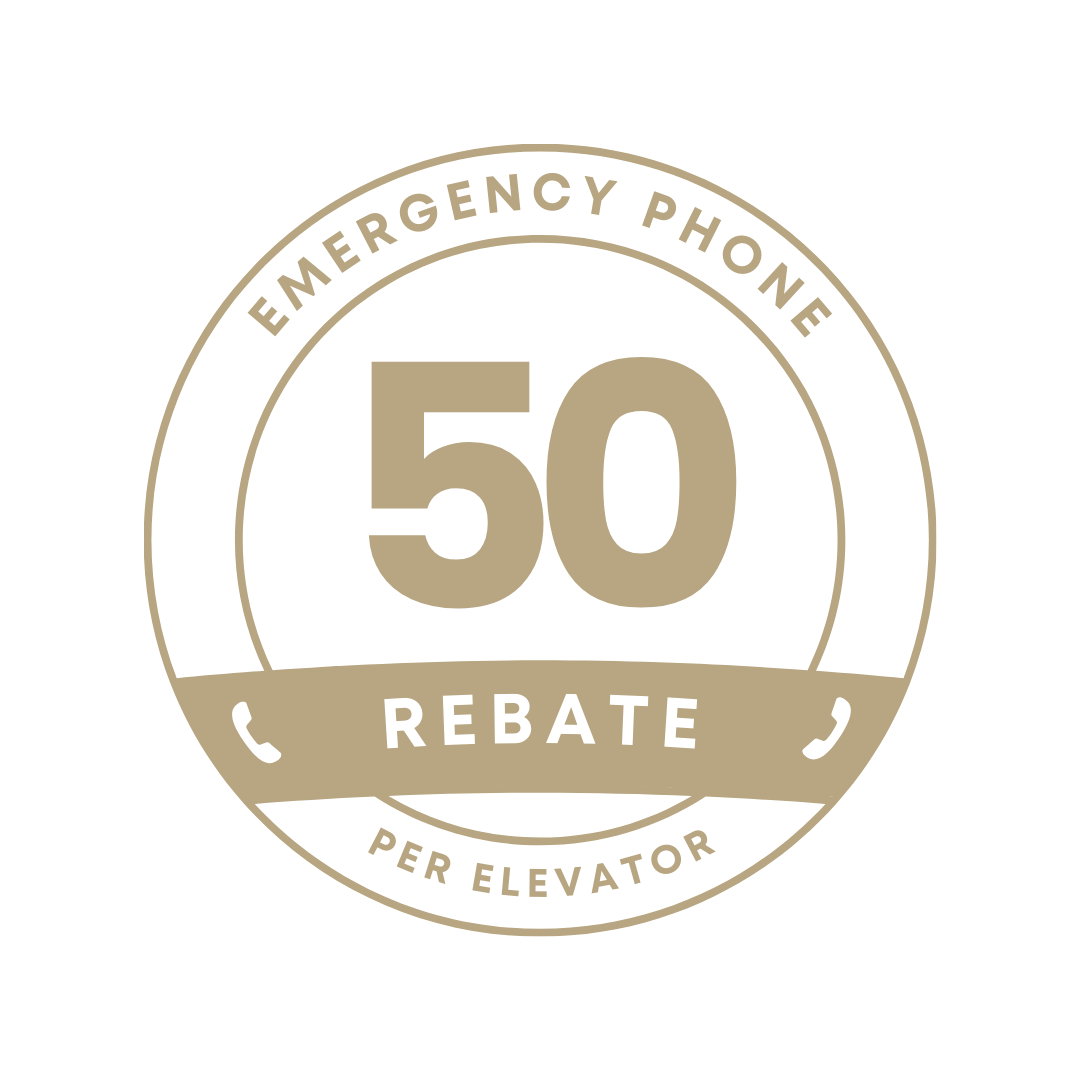Elevator Due Diligence
Elevator Consultant Solutions
Elevator due diligence involves a thorough assessment and evaluation of elevator systems to ensure their compliance with safety regulations, performance standards, and operational efficiency. This process typically includes inspections, audits, and reviews of various components such as mechanical systems, electrical wiring, safety features, and maintenance records. Elevator due diligence aims to identify any potential issues, risks, or deficiencies that may pose safety hazards or affect the functionality of the elevators.
We offer elevator due diligence services, conducting thorough assessments of elevator systems to ensure compliance with safety regulations and operational efficiency. Our team of experts will provide a comprehensive audit report encompassing the entire elevator system, identifying any issues, risks, or deficiencies. Trust us to deliver detailed insights and recommendations for optimizing safety and performance, as well as an accurate budget for purchasing and planning needs.
Key Highlights
- Elevator or vertical transportation due diligence is crucial for property transactions to ensure safety, reliability, and performance.
- Using a property company is not enough as they may not have the technical knowledge to evaluate elevator equipment properly.
- Elevator due diligence is equally important for both buyers and sellers in identifying deficiencies and necessary repairs or upgrades.
- Hiring an elevator consultant during the due diligence process can save buyers millions by uncovering equipment conditions and maintenance needs.
- Elevator audits and inspections provide valuable information about the overall condition and potential future maintenance of elevators.
- Elevator consultants play a vital role in guiding buyers and sellers through the due diligence process and ensuring all necessary steps are taken.
Introduction
Elevators play a crucial role in buildings, offering essential vertical transportation for occupants. Understanding elevator due diligence is vital for property managers, buyers, and sellers in the real estate industry. Elevator equipment, maintenance, and compliance with industry standards are key considerations. This guide will delve into the importance of elevator due diligence, its components, and the pivotal role of elevator consultants in ensuring a smooth due diligence process. Elevate your knowledge on elevator due diligence for successful real estate transactions.
What Is an Elevator Due Diligence Review?
An elevator due diligence review involves a thorough assessment of elevator systems in real estate transactions. It ensures safety compliance, identifies potential liabilities, and assesses equipment conditions crucial for informed buying decisions.
Property Assessment Companies Aren't Specialized
To ensure a comprehensive elevator due diligence process, relying solely on a property assessment company falls short. Elevator due diligence requires specialized knowledge of vertical transportation systems, not typically covered in general property assessments. Specific expertise in elevator equipment, maintenance, and code compliance is crucial. Elevator consultants bring invaluable insight into the unique aspects of vertical transportation equipment, ensuring a thorough evaluation beyond what a standard property assessment might offer. Elevator consultants play a vital role in uncovering potential liabilities and ensuring the functionality and safety of the elevator system.
Understanding Elevator Due Diligence
Elevator due diligence entails a meticulous inspection of vertical transportation systems to assess their functionality, compliance, and future maintenance needs. This process involves evaluating elevator equipment, maintenance history, and adherence to industry standards and code requirements. Property managers and buyers conduct due diligence to uncover potential liabilities and ensure the safety and efficiency of elevator systems. Understanding elevator due diligence is crucial in real estate transactions to make informed decisions regarding modernization, upgrades, and overall system viability.
The Importance of Elevator Due Diligence in Real Estate Transactions
In real estate transactions, conducting elevator due diligence is crucial for ensuring the safety and functionality of vertical transportation systems within a property. Buyers need to assess the elevator equipment's condition, maintenance history, and compliance with industry standards and code requirements. Neglecting this aspect can lead to unforeseen liabilities and safety risks for occupants. Elevator due diligence plays a vital role in providing transparency and minimizing future maintenance costs and legal issues. Making informed decisions based on a thorough evaluation of elevator systems is essential in real estate transactions.
Key Components of Effective Elevator Due Diligence
Understanding the key components of effective elevator due diligence is crucial for a successful real estate transaction. It involves a detailed assessment of the elevator equipment's condition, maintenance history, and compliance with industry standards. By examining the useful life expectancy, functionality, and potential liabilities of the vertical transportation system, buyers can make informed decisions. Additionally, evaluating future maintenance needs, modernization possibilities, and existing service contracts are essential aspects of comprehensive elevator due diligence. This thorough process ensures a smooth and safe vertical transportation system for occupants.
Buying a Building or Set of Buildings
Know the importance of assessing your vertical transportation equipment when buying a building or set of buildings. Understanding the elevator system's condition and liabilities is crucial for future maintenance planning. Ensure that the elevator equipment complies with industry standards and code requirements. Having a clear picture of the functionality and potential upgrades of the elevators and escalators in the building will help you make informed decisions while considering the safety and convenience of the occupants.
Know your equipment’s real condition and liabilities
It's crucial to know the actual state of your elevator equipment to avoid unexpected liabilities. Understanding the current condition can help you assess potential risks and make informed decisions. Conducting a detailed evaluation of the equipment's functionality, maintenance history, and compliance with industry standards is essential. Identifying any existing liabilities or necessary upgrades ensures a smooth and safe vertical transportation system for occupants. Prioritize a thorough assessment to optimize the performance and longevity of your vertical transportation equipment.
Before purchasing an elevator or escalator
Before purchasing an elevator or escalator, conducting meticulous vertical transportation due diligence is crucial. Assess the equipment’s condition, compliance with industry standards, and future maintenance needs. Understanding the useful life of the elevator system is vital to avoid unexpected costs. Engage elevator consultants to evaluate functionality, recommend modernization or upgrades, and ensure code compliance. Comprehensive due diligence will safeguard against potential liabilities and optimize vertical transportation efficiency, benefiting both occupants and property managers. Make informed decisions to maximize the longevity and performance of your vertical transportation systems.
Due Diligence for Commercial Properties
When conducting elevator due diligence for commercial properties, it is crucial to assess the vertical transportation systems thoroughly. This includes evaluating the condition of elevator equipment, maintenance records, and compliance with industry standards. Property managers should also consider future maintenance needs, modernization potential, and any existing service contracts. An in-depth understanding of code requirements and functionality is essential to ensure the safety and efficiency of the vertical transportation system within commercial buildings.
Due Diligence for Residential Buildings
When conducting due diligence for residential buildings, it is essential to focus on the elevator equipment's condition and maintenance history. Assessing the useful life of vertical transportation systems and understanding any outstanding maintenance issues is crucial. Additionally, ensuring compliance with industry standards and code requirements for residential properties is key. A thorough examination of elevator maintenance service contracts and evaluating future maintenance needs can help in making informed decisions during the due diligence process.
Elevator Due Diligence Expertise
Elevator due diligence expertise involves a deep understanding of vertical transportation systems, elevator industry standards, and code compliance. Elevator consultants play a crucial role in assessing elevator safety, identifying potential liabilities, and ensuring that the due diligence process is comprehensive and effective. Their technical knowledge and experience in elevator maintenance service contracts enable them to provide valuable insights into the functionality and future maintenance needs of elevator equipment. Trusting experts in elevator due diligence ensures a thorough evaluation of your vertical transportation assets.
Buying or Selling? Our Elevator Consultants Ensure the Due Diligence Process is on Your Side
Elevator consultants secure your interests in real estate deals. With their expertise, ensure a thorough elevator due diligence process, safeguarding your investment whether you're buying or selling properties. Trust our consultants to navigate potential pitfalls and ensure a smooth transaction.
The Role of Elevator Consultants in Due Diligence
Elevator consultants play a crucial role in due diligence processes. Their expertise in elevator equipment and vertical transportation systems ensures a comprehensive assessment of the property's vertical transportation. Consultants provide valuable insights into code compliance, safety, and potential liabilities. By evaluating the functionality and condition of elevators and escalators, they help buyers and sellers make informed decisions. Their in-depth knowledge of industry standards and best practices adds significant value to the due diligence process.
Assessing Elevator Safety and Compliance
When conducting elevator due diligence, assessing elevator safety and compliance is of utmost importance. Safety should always be a top priority in any building, especially when it comes to vertical transportation systems. Elevators must adhere to strict code requirements set by organizations such as ASME A17.1 to ensure the safety of occupants.
During the due diligence process, a thorough evaluation of the elevator's safety features and compliance with code requirements should be conducted. This includes examining the elevator's maintenance records, safety reports, and inspection records. A clean safety record may not reflect the general wear and tear of the elevator. Therefore, it is crucial to inspect the elevator's hoistway enclosure, traction lifts, and other critical components.
By assessing elevator safety and compliance, potential hazards and risks can be identified and addressed. This not only ensures the safety of building occupants but also helps avoid potential legal liabilities in the future.
Identifying Potential Elevator Liabilities
Identifying potential elevator liabilities is a crucial part of elevator due diligence. The elevator industry is heavily regulated, and failure to comply with code requirements can result in significant liabilities for building owners. Liabilities can arise from various factors, including outdated or faulty equipment, deferred maintenance, and inadequate safety measures.
During the due diligence process, a comprehensive evaluation of the elevator's condition, maintenance history, and compliance with industry standards should be conducted. This includes reviewing elevator invoices, analyzing industry best practices, and assessing the elevator's overall performance.
Identifying potential liabilities early on allows for informed decision-making during property transactions. It enables building owners to address any deficiencies or necessary repairs before they become costly problems. By conducting thorough elevator due diligence, potential legal liabilities can be mitigated, ensuring a smooth and safe operation of the elevator system.
Conclusion
Elevator Due Diligence is a critical component of real estate transactions, ensuring safety, compliance, and risk mitigation. It goes beyond property assessments, focusing on the condition and liabilities of elevators and escalators. To safeguard your investment, understanding the key components and enlisting elevator consultants for expertise is crucial. Whether for commercial or residential properties, due diligence in elevators is a specialized process that demands attention to detail. Elevator consultants play a vital role in assessing safety, compliance, and potential liabilities, offering insight to ensure a smooth transaction. Prioritize elevator due diligence to make informed decisions and protect your investment.
SAVE TIME
Elevator contractors can be tough. A local elevator consultant has industry leverage you may not.
SAVE MONEY
You don't know what you don't know. A professional elevator consultant will protect your pocketbook.
50 STATES
Our network of local elevator consultants spans the entire country - including Hawaii & Alaska!
EXPERIENCED
With decades of experience between our consultants and us, we've seen almost everything!




